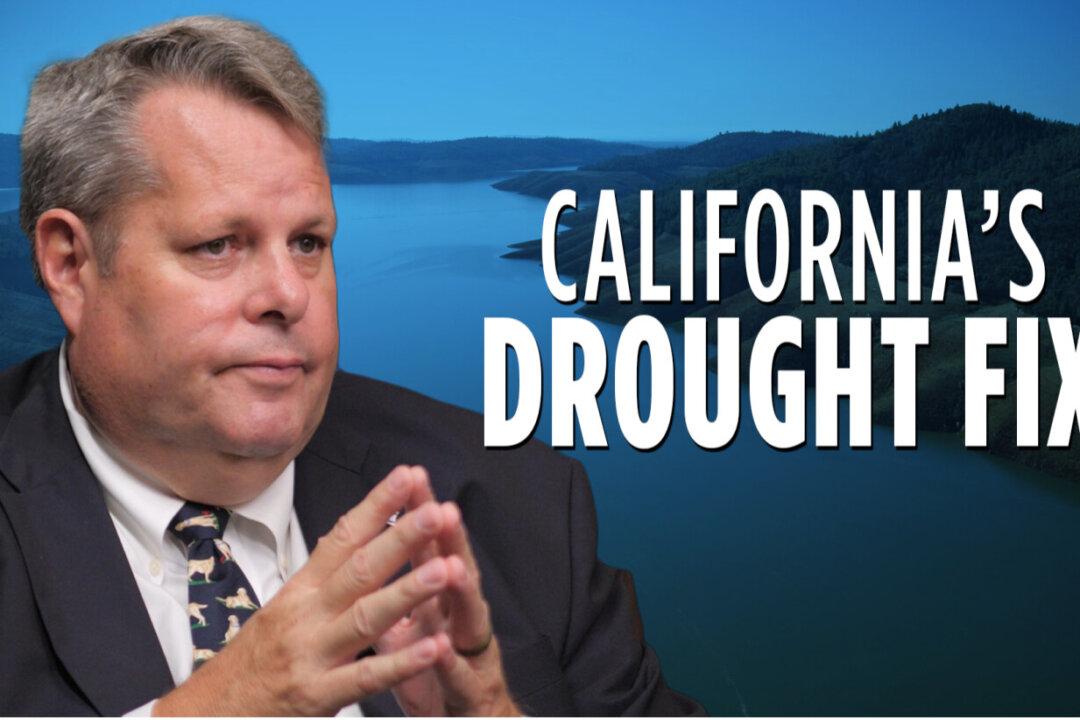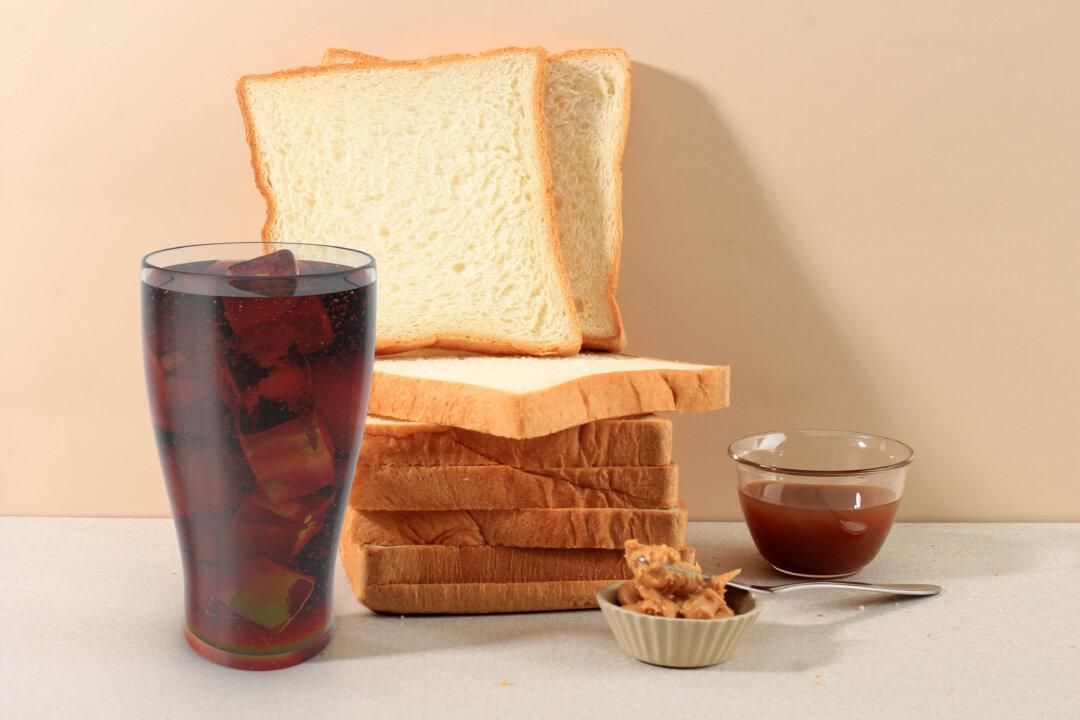Join Siyamak Khorrami for an enlightening episode of “California Insider” as he speaks with guest Brett Barbre, former District 1 representative of the Metropolitan Water District of Orange County Board of Directors, and currently a water district general manager. In this episode, they discuss the water shortage in California and how the state can fix it, if only the current leadership wanted to.
Barbre explains that California is always in one sort of drought or another. The real issue is that the state focuses on the demand side but not the supply side. Barbre says that 14 to 20 days of rain, if captured properly, would take care of all the state’s water needs for an entire year. However, much of California does not have the proper infrastructure to store their water supply effectively.
Barbre says that although Southern California has learned to overcome the droughts by building a wonderful infrastructure, much of the state does not have enough storage to gather in times of plenty and use in times of shortage. He explains that the average water supply of the state is pretty consistent. Of the water that can be developed, about half is taken off the table and used for environmental factors, and then a smaller amount is used for agriculture, which is crucial for food supply for the world. In regards to what humans can consume however, the state is left with a very small amount.
According to Barbre, the Department of Water Resources is charged with taking care of the environment first and humans second, which is why half of the usable water is allocated for environmental purposes. He says that the state hasn’t been able to store the human usable water sufficiently, despite having enough rain to meet the demand.
During times of shortage in California, the water for the farmers and the people is the only thing that will get cut. “It used to be that our policy makers worshipped the creator,” says Barbre, “today they worship the created, putting the fish and the animals before the humans. It’s not supposed to be that way.” He also points out that this discussion is nearly impossible to have due to environmental agenda taking precedence among the mainstream media, reporters, and environmental groups. To talk about reallocating or cutting the environmental portion of the usable water would be equivalent to heresy.
However, with proper infrastructure, California would have enough water to supply the farmers and humans with what they need without touching the environment allocation. Although many groups want to be rid of infrastructure and get back to all natural sources of power and fuel, Barbre argues that Southern California would not be here without major infrastructure. These great projects are what has allowed California to develop with major dams that bring water and power to the state. Unfortunately, not very much has been done since the original infrastructure.
Barbre says that with the metropolitan area not responding to the droughts, Southern California has had to pay for and create their own infrastructure to create solutions, citing plants and other major innovative projects that they have used to be good stewards of their water supply. However, although they have made these investments to sustain themselves, the government has come in and taken their resources and distributed them to the rest of the state.
When asked if voters can make a difference in this area, Barbre gives some helpful tips along with insight into why the necessary changes aren’t happening. He says that people can vote for what or who they want, but the voters don’t really have a say in making the actual projects happen. Construction happens slowly and it is expensive. The environmental work and studies required to justify the project—and prove it won’t impact the community at all—makes it very difficult to actually be able to start any of these necessary infrastructure projects.
Meanwhile, environmentalists are off doing their own projects with blank checks from government agencies and no say from voters, resulting in a less proactive society. Even if the necessary projects have the funding needed, Barbre says that Governor Newsom often interferes, dictating that the projects be done in a different way. “You hate to blame everything on the environmental community, but they really do have a lot of power.”
Barbre also explains how oftentimes legislation about storage does get votes, which makes lawmakers feel good, but the long list of environmental factors that need to be checked in order to qualify for these projects will never be met, so at the end of the day they aren’t really doing anything. He says this is why legislators like to focus on the demand side, because that side gives them power and control. They can say “this is how much water you can use ‘' or how often to shower, flush, or do laundry. The government can make rules prohibiting people from building a swimming pool or forcing residents to tear out their grass saying that it’s ornamental and they don’t need it. Barbre says this method of governing takes away individual choice. Most people dream of having things like a yard or a pool, but now those things are going by the wayside.
The answer is to build infrastructure in order to have more storage. If California had more storage, then they wouldn’t need to touch the environmental allocation. “Our state used to be a state of abundance,” Barbre says, stating that tremendous amounts of money from the oil industry once made California a land of opportunity that everyone wanted to come to and be part of. Now it’s all gone.
He says that it will most likely take a catastrophic event for policy makers to come to a point where they have to change what they are doing. The government is typically good at responding to crises, but not so good at preventing them. Barbre explains how the wildfires are a perfect example of this. People say the cause of the fires are power lines, but in reality the fires are a result of improperly managed forests. He says some areas of California have built infrastructure that helps manage the fires, but even though these projects are getting around to other agencies, it takes real leadership to bring them to fruition.
“The current governor I don’t think really cares about water and the environment,” said Barbre. “It’s kind of a lose-lose issue, you’re going to have enemies on both sides, so he’s going to focus on the more ‘popular’ issues, and it’s always more popular to create a new program.” Even with new leadership and six or eight years of solid pushback, Barbre points out that it also takes a long time to build these projects, but he hopes it can happen before a catastrophic event.
The episode concludes with the question of whether the farmers and the environmentalists can actually come together and work out a plan. Barbre says the problem with this is that the two sides have such different philosophies. One side wants to tell others how to live their lives, meaning that they like having a water shortage so that they can control everything. The other side believes that California should have an abundant supply of water, which will allow the economy to grow and more people to move there. Another challenge is that even when agencies or organizations come to realize the reality of the situation and propose real solutions, the political left threatens money and funding unless those organizations follow the left’s agenda entirely.
“Every 20 years you lose half of your water supply. If we are not continuously developing new water supplies ... people fight wars over water,” says Barbre. He makes the case that Southern California is doing well, but the rest of the state is not. Since three quarters of the state’s water is in northern California, the need for more storage infrastructure and less political agendas is essential.
Follow EpochTV on social media:





